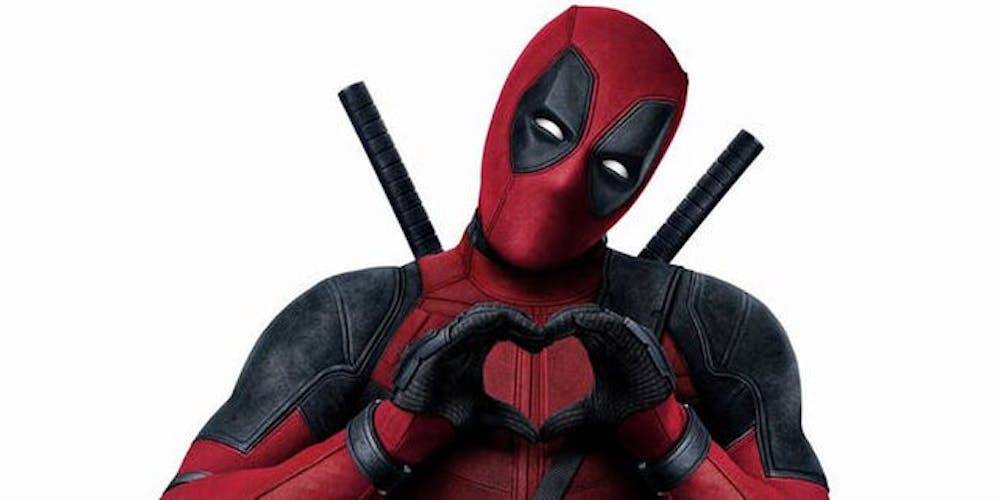By Donovan Crumpton
Correspondent
Diving into the murky depths of the Marvel Cinematic Universe (MCU), recent years reveal a landscape far removed from its golden era of the Infinity Saga. Once hailed as the pinnacle of Hollywood superhero storytelling, the MCU now struggles beneath the weight of its ambition, drowning in a sea of disinterest and oversaturation.
Throughout its first three phases, coined as the Infinity Saga, the MCU was the epitome of Hollywood and superhero movies, releasing fan favorites like “Iron Man” (2008) and “Spider-Man: Far From Home” (2019). Over time, it has become a generally disinteresting and over-saturated concoction of content. They often tell stories fans do not want, sacrifice writing for the sake of sending messages to viewers, flood Disney+ with shows that, more or less, connect with the films or over-complicate their multiverse.
Even though all of the above fits the context of the MCU’s situation, the multiverse aspect is an important point of discussion. The convoluted interpretation of the concept has hindered the stories leading to “Avengers: The Kang Dynasty” and “Secret Wars.”
Despite "Endgame" establishing the multiverse as a central narrative focus for the future, the subsequent phases have failed to deliver clear definitions, consistent terminology, coherent stories or unified visual designs for this concept. Some notable examples include treating alternate timelines and universes as interchangeable. Therefore, the return of Deadpool to the big screen may be the last chance for the MCU to repair that mistake.
“Deadpool & Wolverine,” the long-awaited third entry in the Deadpool film franchise, exploded online during Super Bowl LVIII, with Ryan Reynolds reprising his beloved portrayal of the “merc with a mouth,” Wade Wilson, alongside Hugh Jackman returning to the X-Men as Logan. More originally, Fox-licensed heroes entered the MCU as per Disney’s 2019 acquisition of Fox.
However, the implementation of Marvel heroes originally under Fox instilled fear among fans that Disney would reduce the writing, dialogue and various other aspects that kept those heroes more adult and not as family-friendly as Disney.
This is exemplified through the short-lived and relatively underwhelming returns of “Mr. Fantastic” portrayed by John Krasinski, Evan Peters’s “Quicksilver,” Charlie Cox’s “Daredevil” and Wilson Fisk’s “Kingpin” due to lackluster writing from the productions they returned for. People fear that Deadpool and Wolverine characters would also be watered-down as their iconism in the films can be attributed to their homicidal action that carries emotional significance further into their stories.
Disney has dipped their toes into the bloodbath, attempting to demonstrate maturity by incorporating bloodshed into MCU productions that can be likened to splattering paint on a wall. Despite their efforts to showcase "brutal" fight scenes in films like "Doctor Strange and the Multiverse of Madness" and "Echo," they ultimately fall short of acclaim due to their exaggerated approach and lack of genuine depth.
The director for “Deadpool & Wolverine,” Shawn Levy, confirmed the film will maintain an R-rating, and while the trailer already proves that via the action scenes and comedic dialogue, even one of the most comedic mercenaries cannot stand alone with those aspects without a strong narrative.
“Deadpool & Wolverine” awaits official confirmation for its plot but, as fans hope Deadpool resets the MCU, they do not necessarily only mean with tone, but quite literally reset it entirely.
A consensus among most fans is that the movie builds off the idea of the “Deadpool Kills the Marvel Universe” comics.
While the comics play more as a comedic slaughter fest without much context other than Deadpool feeling like killing, adapting it with the two mutants eliminating moments in timelines where fans saw the MCU fumble feels like a bold but necessary method for the franchise.
As previously mentioned, this franchise has grown over-saturated with plotlines that either nobody expressed interest in or felt completely superfluous, largely in part to a handful of Disney+ shows. They effectively provide audiences homework if connections from those shows appear in theatrically released movies, making less sense to those who did not watch the shows beforehand.
The public has occasionally altered their perspectives on what MCU films constitute the death of the franchise, looking at films that are unjustifiably convoluted, underwhelming or both with plot. Marvel Studios has all their eggs seemingly in one basket with “Deadpool & Wolverine,” given how this is the only MCU production for 2024, implying they could value the time needed to turn their company on the right track.
The film releases on July 26, and if it underperforms with the general agreement, that will simultaneously tarnish the Deadpool franchise, make “Avengers: The Kang Dynasty” and “Secret Wars” amount to virtually nothing and be the genuine nail in the coffin for the Marvel Cinematic Universe and a once-widely acclaimed return to superhero films.







